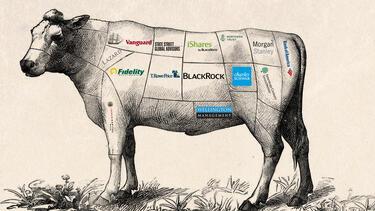Economics
When Skilled Workers Go Abroad, Their Home Countries Experience ‘Brain Gain’
When skilled workers from poorer countries migrate to wealthy ones, there are benefits for the origin countries as well as workers and the host countries, according to new research co-authored by Yale SOM’s Mushfiq Mobarak. But anti-immigrant sentiment and policy could disrupt this mutually beneficial dynamic.

What Is the Future of Globalization?
A wave of nationalism around the world has left many wondering if the trend toward greater global connection has reversed. Global Network Perspectives asked faculty throughout the Global Network for Advanced Management about the future of globalization in their regions.

Does Immigration Create Jobs?
Research shows that, contrary to much of the rhetoric on the topic, immigration can contribute to economic growth and expansion of the labor market
What’s the Future of U.S.-Mexico Relations?
Professor Jeffrey Sonnenfeld recently assembled a group of business and political leaders from Mexico and the United States to discuss the state of the strained but critical relationship between the two countries.

How Does Immigration Affect Global Business?
Immigration can help economies become more dynamic and efficient, but inclusive policies often create political landmines. How are countries around the world handling the challenge?

Donald Trump and the Sense of Power
Yale's Robert J. Shiller writes that Donald Trump offered voters the promise of control over their own economic destinies. But it won't be easy for him to deliver.
Restricting Employment Restrictions
Research shows that limiting enforcement of non-compete agreements encourages entrepreneurship and economic growth.

What’s the Real Jobs Picture?
Yale SOM’s Lisa Kahn on the revolutionary shift in labor markets as automation and offshoring reshape work as we’ve known it.

What’s Behind a Rise in Ethnic Nationalism? Maybe the Economy
Yale’s Robert J. Shiller considers how slow wage growth and economic inequality may provide the fuel for the rise in ethnic nationalism across many countries.
What Happens When the Same Investors Own Everything?
Diversification means that in many industries, companies are owned by an overlapping set of investors, reducing their incentive to compete.

How Do You Enforce Antitrust Law in a Global Marketplace?
Professor Fiona Scott Morton, the former chief economist in the Antitrust Division of the U.S. Department of Justice, on the state of global competition law.
